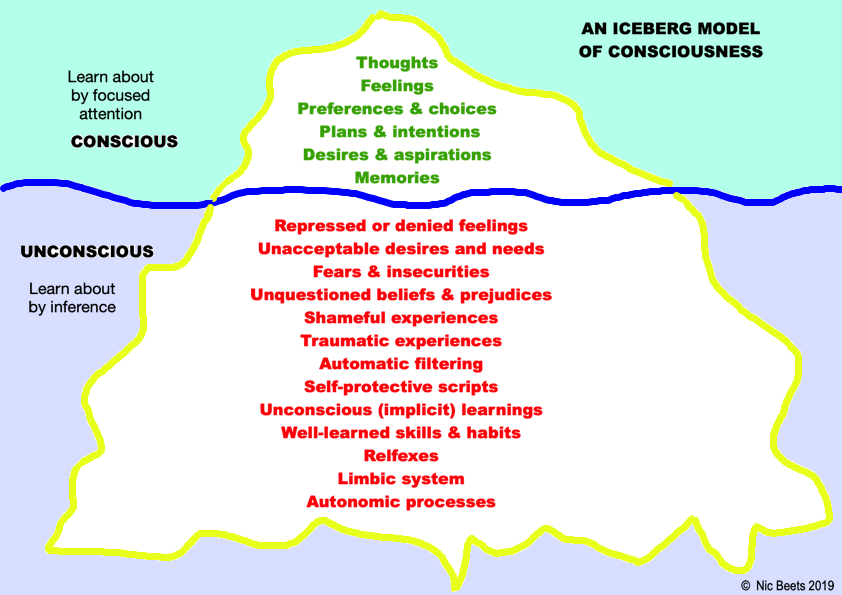
Explaining how therapy works can be hard
Clients who haven’t had much practice at self-exploration or even talking about their feelings often need quite a bit of psychoeducation about the therapy process. I have adapted Freud’s “iceberg” model by getting rid of the confusing notion of the “pre-conscious” and accepting consciousness is a function of what we focus our attention on. So everything that we can notice by focusing our attention is “conscious”.
If we can’t access it by focusing our attention, then it’s unconscious. The point of the iceberg metaphor is that there is MUCH more hidden than what is above the surface. Yet if we want to have some sense of control over our lives we need to learn about what is below the surface.
Growing up, many of us found that certain feelings or desires or behaviours were unacceptable to our families, and we learned to repress or deny these – even to ourselves. This is particularly true of what I would call “core insecurities” or shame (e.g. I’m not good enough, I’m not important, I’m not safe…). These feelings and thoughts are pushed out of consciousness and we frequently become unaware they are there. When you ask many clients about them, they look at you blankly.
The thing I find myself stressing to clients is that we learn a lot about the unconscious by reflecting on what we did and looking for discrepencies between what we intended consciously and what how we actually behaved. So we learn about the unconscious by inference.
In my experience we often know, have a gut feeling or “felt sense” when the inference we are drawing is accurate. It is by this means that we start to move things from the unconscious to the conscious, from the unknown to the known. If we then hold on to that insight and notice if it plays out consistently we complete the shift and what was hidden to us becomes part of our understanding of ourselves and how we operate. We then have the option of choice about whether we want to continue to operate this way or learn a different way to deal with things.
